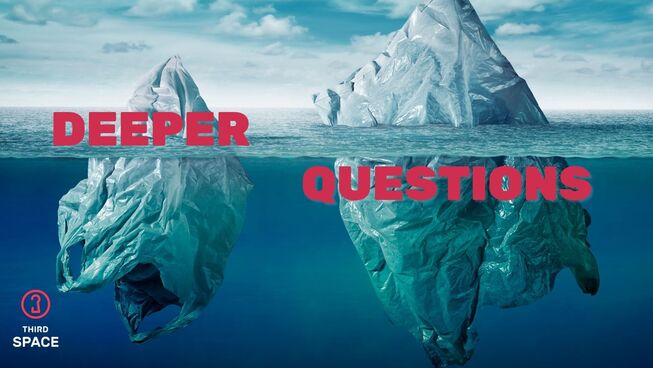Kinds of Kindness

⭐️ ⭐️ (out of 5)
Kinds of Kindness is a triptych of vignettes that explore three transgressive and bizarre scenarios, with surreal twists and turns along the way. Emma Stone, Jesse Plemons and Willem Dafoe are joined by a brilliant group of players – Hong Chau, Joe Alwyn, Mamoudou Athie and Margaret Qualley – in these strange, surprising and subversive tales. The first follows a man (Plemons) who leads a happy and successful life. But we soon learn that he is in the iron grip of his powerful employer (Dafoe) – when he rebels and tries to take back control, the odds are stacked against him. Next, a cop (Plemons) is relieved when his wife (Stone), lost at sea while conducting research, is rescued. But then he becomes convinced that she is not who she says she is – believing instead that a doppelganger has returned in her place. Finally, a duo (Plemons & Stone) conducts a search for a person (Qualley) with a very particular skill to occupy an elevated position in a sex cult led by a charismatic spiritual leader (Dafoe).
Yorgos Lanthimos is a peculiar writer/director. His films are offbeat, darkly humorous (often to the point of cruelty), discomforting, and focus on psychosexual dependency, power struggles and self-destructive cycles of control and chaos. His latest, Kinds of Kindness, is a subversive triptych of three vignettes that are always interesting, seldom enjoyable, and simultaneously restrained yet excessive. Featuring the same cast across the three stories (Jesse Plemons, Emma Stone, Willem Dafoe, Hong Chau, Margaret Qualley, Mamoudou Athie, Joe Alwyn) it often needs to work on getting the viewer invested as the stories. Yet, Lanthimos and co-writer Filippou never bore you. The film consistently engages, confuses, concerns, entrances, and overwhelms. Certainly, an interesting movie to see with an audience with plenty of audible gasps, scattered laughs, and a general atmosphere of awkward investment.
Lanthimos is a director confident in his craft, and his whole creative team once again commits to his singular vision, with Jesse Plemons really standing out (in his first collaboration with Lanthimos - and likely the first of many more). The film is visually grabbing, sharply edited, and always off-kilter. It’s a confronting and often disturbing experience with violence, sexual content, abuse and other dark themes. Some will appreciate it as an arthouse film but I doubt it will be enjoyed as entertainment.
Reel Dialogue: What motivates our kindness?
Yorgos Lanthimos’ Kinds of Kindness is a stark critique of the concept of kindness. More often cruel and mean than it is caring and kind, the film exposes any semblance of kindness or acts of charity as really selfish power plays being enacted to manipulate others for personal gain. Whether it be a “kind” employer showing favour to his employer, a “kind” wife doting on her ill husband, or a “kind” cult leader seeking to lead his followers to spiritual enlightenment. This kindness is in reality shallow, hollow and not the kind of kindness that actually benefits the whole.
Genuine kindness is other-person-centred, selfless, and humble. It is unearned and freely given without expectation of compensation. The Apostle Paul writes that those who follow Jesus are to be kind to one another and forgiving because Christ was kind towards us in His forgiveness. Have you experienced this kind of kindness?
Be kind to one another, tenderhearted, forgiving one another, as God in Christ forgave you. - Ephesians 4:32












